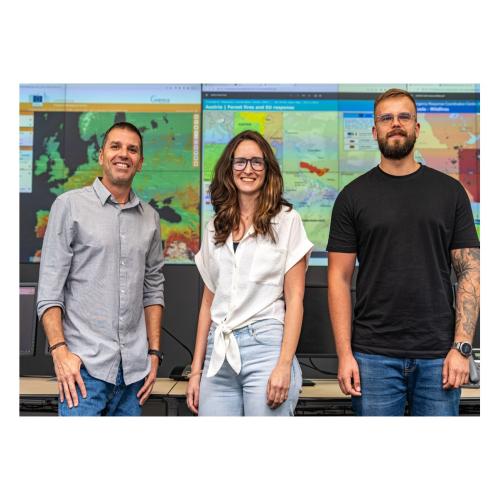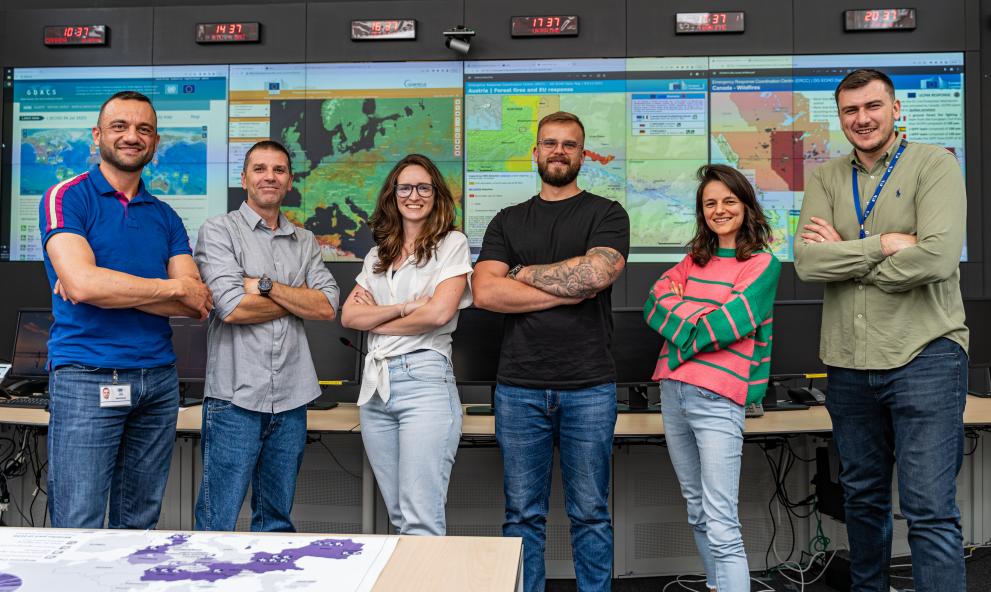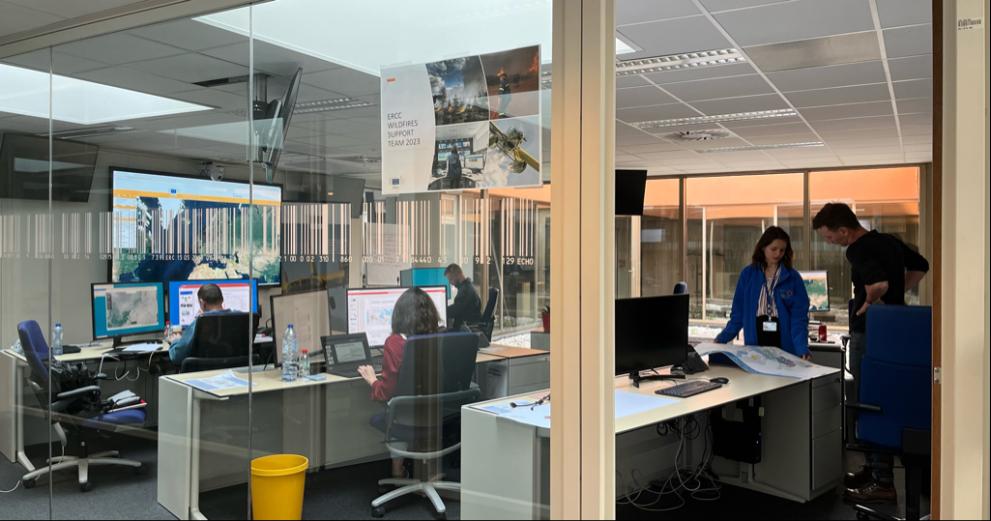
Wildfires 2023: meet the Wildfire Support Team experts
Throughout the wildfire season, the Wildfire Support Team is an additional asset of the UCPM, with a wide range of activities during the summer period. Based at the ERCC, the Wildfire Support Team contributes to operational awareness and ongoing wildfire operations, and takes an active part in wildfire reporting. We met some of the experts currently bringing their skills and knowledge to the Team.


